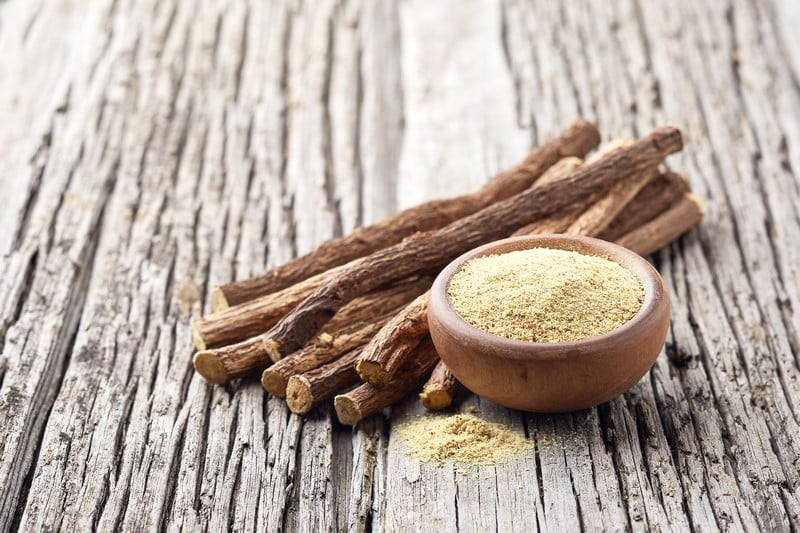Licorice Root

The substances that give licorice root its sweet flavor and its anti-inflammatory and anti-acid properties are Vitamin C and B1. Minerals like calcium, magnesium, potassium, flavonoids (antioxidants), proteins, and glycyrrhizin, are all present in the root.
Due to the activity of glycyrrhizin, licorice root tea is particularly efficient in treating indigestion by reducing inflammation of the digestive tract, including gastritis. Similar advice is given to prevent and cure peptic ulcers. Blending mint and licorice root is also typical to calm an upset stomach.
Since ancient times, licorice root has been utilized as a herbal treatment. Licorice root tea is effective in treating the symptoms of GERD and acid reflux, including heartburn.
Glycyrrhizin, the main chemical in licorice root, can stimulate mucus production, shielding the stomach and esophagus from acid. However, ingesting too much glycyrrhizin carries some hazards. As a result, some licorice products undergo processing to reduce the amount of glycyrrhizin, making them safer to consume. Even though it is helpful for indigestion, licorice root can increase blood pressure and generate enormous amounts of sodium and potassium imbalances.










